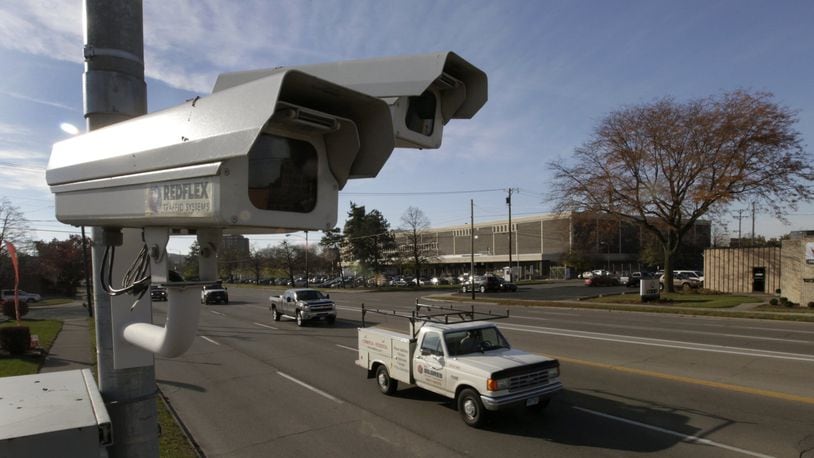By a 5-0 vote commission vote Wednesday morning, the new ordinance will go into effect in 30 days.
» READ MORE: Dayton approves new red light camera ordinance
Dayton has taken the issue to the Ohio Supreme Court, arguing the state law is unconstitutional, violating the Home Rule provision giving municipalities the right to self-govern.
Below are some points debated by Dayton and outcomes of other area court cases involving traffic enforcement cameras:
Judge rules return of millions in fines: In February, a Butler County judge ruled that $3 million in fines should be returned to drivers caught by former speed cameras in New Miami.
Judge Michael Oster issued the ruling and asked attorneys working on behalf of drivers receiving more than 44,000 tickets to provide within 30 days a spreadsheet of names and what the ticketed paid in fines.
Tied up in court: New Miami's speed cameras were declared unconstitutional in March 2014 by Butler County Common Pleas Judge Michael Sage. The case was back and forth in appellate courts and last summer the Ohio Supreme Court declined to review the case.
Village officials support cameras: New Miami had received 60 percent of the amount collected from speeders and Optotraffic, the company that operated the equipment, received the remaining 40 percent. The village contends the cameras are more efficient at keeping drivers in line while freeing up officers for other duties.
Cameras contentious: Speed and red-light cameras have been a contentious issue in Ohio among motorists, police departments and Ohio legislators for years. That has often left the courts to sort out an individual's due process rights and decide whether municipalities have the ability to set laws that don't conflict with the state's general law.
Red-light cameras mainly idle: The city of Dayton is one of six communities in the area with red light cameras sitting idle. Due to a state law that took effect in March 2015, they're effectively banned unless officers are stationed with the cameras.
Home Rule questioned: John Musto, Dayton's assistant city attorney, argued in front of the Ohio Supreme Court in January that cities are protected by Home Rule and should be allowed to determine how to enforce certain laws. Springfield, Akron, East Cleveland other cities filed briefs supporting Dayton's argument.
Costly enforcement: Municipalities in the Miami Valley reported receiving more than $14 million in revenues tied to tickets issued by more than 80 traffic cameras over the years. Cities argue — even with that revenue — using traffic cameras under the 2014 law with its demand on officer resources is a losing proposition.
Decision expected: The Ohio Supreme Court is expected to rule on the Dayton red-light camera case this year.
About the Author
